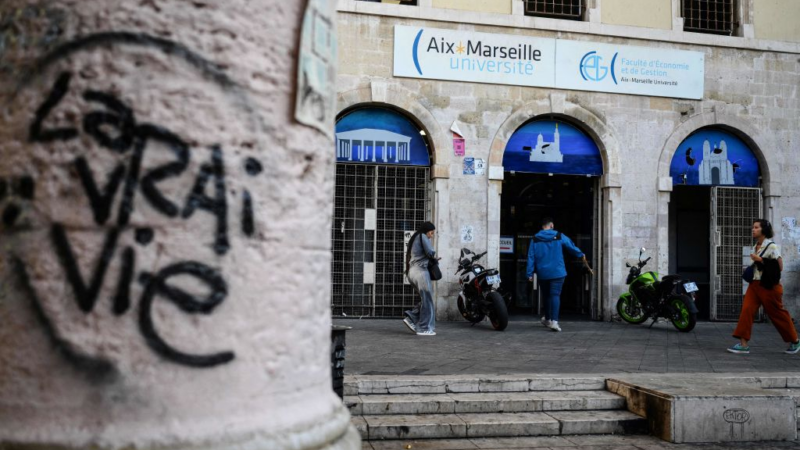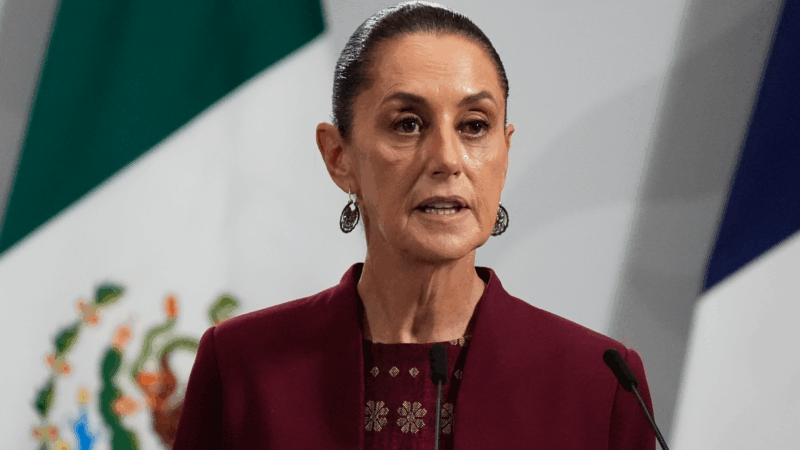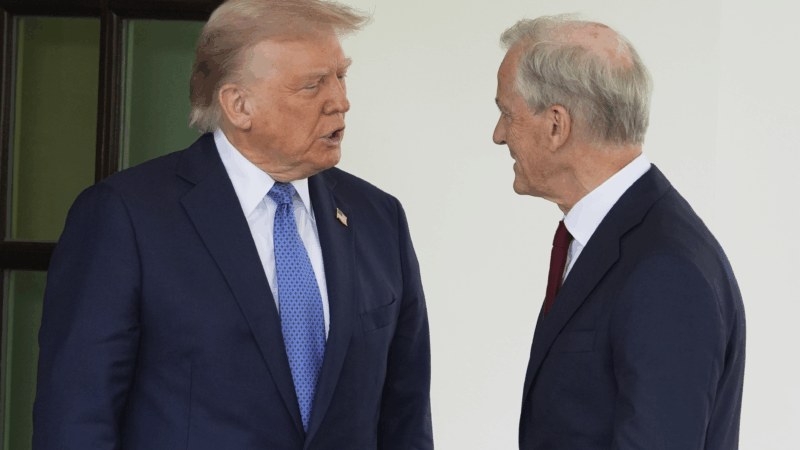Countries boost recruitment of American scientists amid cuts to scientific funding
As the Trump administration and Elon Musk’s DOGE seek to reduce the federal workforce and cut spending, some European countries are looking to capitalize on the opportunity by recruiting talent from the scientific community.
The administration’s actions, including eliminating programs and funding for scientific research, are prompting some researchers and scientists to consider leaving the U.S. to live in other countries, such as France, to continue their work.
According to a survey released by the journal Nature on Thursday, more than 1,200 respondents who identified as scientists said they were considering leaving the U.S. and relocating to Europe or Canada because of President Trump’s actions. Approximately 1,650 people completed the survey, which was posted on the journal’s website, social media and an e-mailed newsletter, according to the journal.
Jennifer Jones, director of the Center for Science and Democracy at the Union of Concerned Scientists, tells NPR that she has spoken with scientists, some of whom currently work at federal agencies and others who have been fired. Many of them say they are looking for opportunities abroad due to a lack of options for conducting their research with the government or at universities, Jones says.
“There’s another bucket of folks as well, and those are folks who are just worried in general about the intimidation, fear and harassment that they are facing,” she says. “This could be a result of the kind of work that they’re doing. They might be doing work around issues of diversity, equity, [and] inclusion, trying to broaden participation in our STEM or science, technology, engineering, math fields. These could be folks working on issues of climate change, of vaccine safety.”
Jones also says she has spoken with scientists who said after the 2024 presidential election, they “began seeking and have acquired positions overseas.”
“They would have started that process before inauguration and before the last few weeks,” Jones says.
Helping as many scientists as possible
The U.S. has historically been viewed as a leading country for research, having actively recruited scientists from around the world for significant projects and studies. For example, when the Manhattan Project began in December 1941, it was a top-secret research initiative by the U.S. government that ultimately led to the development of the first atomic bombs. Scientists from Europe were specifically sought out to help with the project. Many of these European scientists were already living in the U.S. after being displaced because of the turmoil of WWII or fleeing from Nazism and fascism.
American scientists conducting research in other countries is not a new phenomenon, and there are programs where American students and scientists can study abroad, Sudip Parikh, CEO of the American Association for the Advancement of Science, tells NPR. But the growing number of American scientists considering leaving the U.S. due to uncertainty in the U.S. is not normal, he says.
“It’s something that’s ramped up and it has a different messaging, which is saying, ‘There’s uncertainty there. Come to us,’ ” Parikh says of efforts by other countries to recruit scientists and researchers from the United States.
In response to these recent developments, schools in France, including the prestigious CentraleSupélec, have established funds to support American scientists. The engineering school announced last week that it has allocated 3 million euros (around $3.2 million) to finance research projects that can no longer continue in the U.S. Additionally, earlier this month, Aix-Marseille Université — one of the oldest and largest universities in France, with roots tracing back to1409 and approximately 80,000 students — announced it is accepting applications for its Safe Place For Science program.
The program aims to offer “a safe and stimulating environment for scientists wishing to pursue their research in complete freedom” and will support about 15 American scientists with a total fund of up to 15 million euros (around $16.2 million) over three years. The university has already received more than 150 applications, according to a public relations agency representing the university.
“We are witnessing a new brain drain. We will do everything in our power to help as many scientists as possible continue their research,” Éric Berton, president of the university, said in a statement. “However, we cannot meet all demands on our own. The Ministry of Education and Research is fully supporting and assisting us in this effort, which is intended to expand at both national and European levels.”
Other countries are also actively seeking to attract American scientists. For instance, the Netherlands is also launching a fund to support American scientists as well as those from other countries. Minister of Education, Culture and Science Eppo Bruins informed the parliament in a letter last week that he requested the country’s science financier to set up a fund aimed at bringing top international scientists to the Netherlands as soon as possible.
“The world is changing. Tensions are increasing. We see that more and more scientists are looking for another place to do their work,” Bruins wrote in the letter. “I want more international top scientists to come and do that here. After all, top scientists are worth their weight in gold for our country and for Europe.”
While it remains unclear what funding will be available for scientific research from the U.S. government and for universities, Parikh says he is encouraging scientists working here not to leave.
“Over the last 80 years, we have built the greatest innovation engine that the world’s ever seen and it’s delivered cures and treatments for disease. It has delivered economic growth and jobs. And the other countries have paid attention and they wanna copy it and we shouldn’t make it easy for them,” he says.
NPR’s Geoff Brumfiel contributed to this report.
Indiana completes undefeated season and wins first national title, beating Miami
Indiana bullied its way into the history books Monday night, toppling Miami 27-21 to put the finishing touch on a rags-to-riches story, an undefeated season and the national title.
Top U.S. archbishops denounce American foreign policy
The three most-senior cardinals leading U.S. archdioceses issued the rebuke in a joint statement on Monday, saying recent policies have thrown America's "morale role in confronting evil" into question.
Italian fashion designer Valentino dies at 93
Garavani built one of the most recognizable luxury brands in the world. His clients included royalty, Hollywood stars, and first ladies.
Sheinbaum reassures Mexico after US military movements spark concern
Mexican President Claudia Sheinbaum quelled concerns on Monday about two recent movements of the U.S. military in the vicinity of Mexico that have the country on edge since the attack on Venezuela.
Trump says he’s pursuing Greenland after perceived Nobel Peace Prize snub
"Considering your Country decided not to give me the Nobel Peace Prize… I no longer feel an obligation to think purely of Peace," Trump wrote in a message to the Norwegian Prime Minister.
Can exercise and anti-inflammatories fend off aging? A study aims to find out
New research is underway to test whether a combination of high-intensity interval training and generic medicines can slow down aging and fend off age-related diseases. Here's how it might work.








